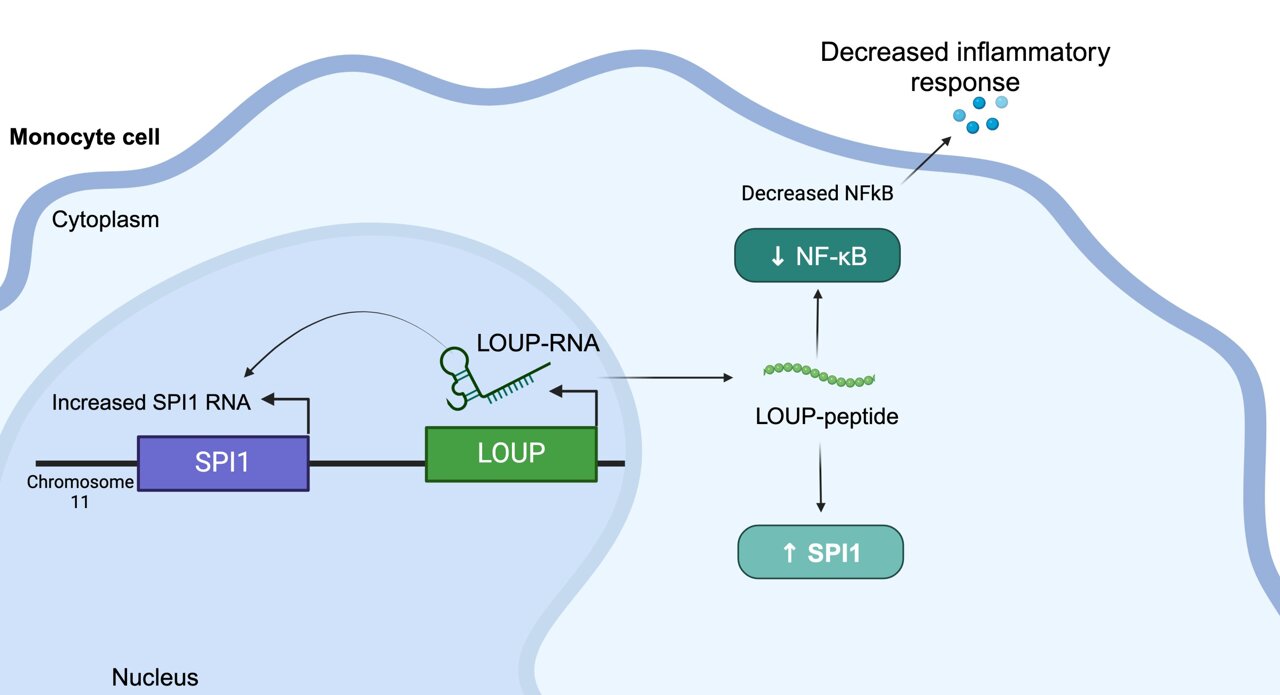New Study Reveals Peptide in Human RNA Regulates Inflammation
Recent research conducted by UC Santa Cruz researchers has unveiled a groundbreaking discovery regarding a peptide found in human RNA that has the ability to regulate inflammation. This discovery opens up new possibilities for treating various inflammatory diseases such as arthritis and lupus. The team utilized a screening process that leveraged the CRISPR gene-editing tool to uncover this novel peptide within a long non-coding RNA (lncRNA) known as LOUP. With over 20,000 lncRNAs encoded in the human genome, the function and significance of these genes have remained largely unknown, earning them the moniker of the «dark matter of the genome.» By focusing on lncRNAs present in immune cells, particularly monocytes, the researchers were able to pinpoint a region within LOUP that not only functions as an RNA but also harbors a previously unknown peptide responsible for regulating inflammation. This finding provides a potential target for drug developers to disrupt the molecular interactions driving inflammatory responses with precision, paving the way for future RNA-based therapeutic interventions.
CRISPR Screening Unveils Novel Regulatory Mechanisms in Inflammation
The study published in the Proceedings of the National Academy of Sciences (PNAS) sheds light on the intricate regulatory mechanisms governing inflammation within immune cells. By employing a CRISPR-based screening approach, researchers were able to identify functional lncRNAs that play a crucial role in modulating inflammatory signaling pathways. This innovative screening method allows for the simultaneous targeting of numerous genes in a single experiment, offering a more efficient means of investigating uncharted territories of the genome compared to traditional gene-focused studies. Led by immunologist Susan Carpenter, the research team at UC Santa Cruz uncovered a multifunctional region within LOUP that orchestrates macrophage differentiation and inflammatory signaling. The discovery of a previously unrecognized peptide within this RNA locus presents a promising target for developing precise therapeutic interventions aimed at curtailing inflammatory responses at the molecular level.
Implications of RNA-Derived Peptide Discovery for Future Therapeutics
The identification of a regulatory peptide embedded within the LOUP lncRNA has significant implications for the development of novel therapeutic strategies targeting inflammation-related diseases. By elucidating the role of this peptide in fine-tuning inflammatory signaling, researchers have unveiled a potential avenue for designing targeted interventions that can selectively modulate the immune response. This newfound understanding of the molecular interactions facilitated by the RNA-derived peptide offers a roadmap for future drug development efforts focused on disrupting specific inflammatory pathways with heightened precision. With the burgeoning interest in RNA therapeutics, the discovery of this tiny target on RNA to short-circuit inflammation holds immense promise for revolutionizing the treatment landscape for a myriad of inflammatory conditions, ushering in a new era of precision medicine.
